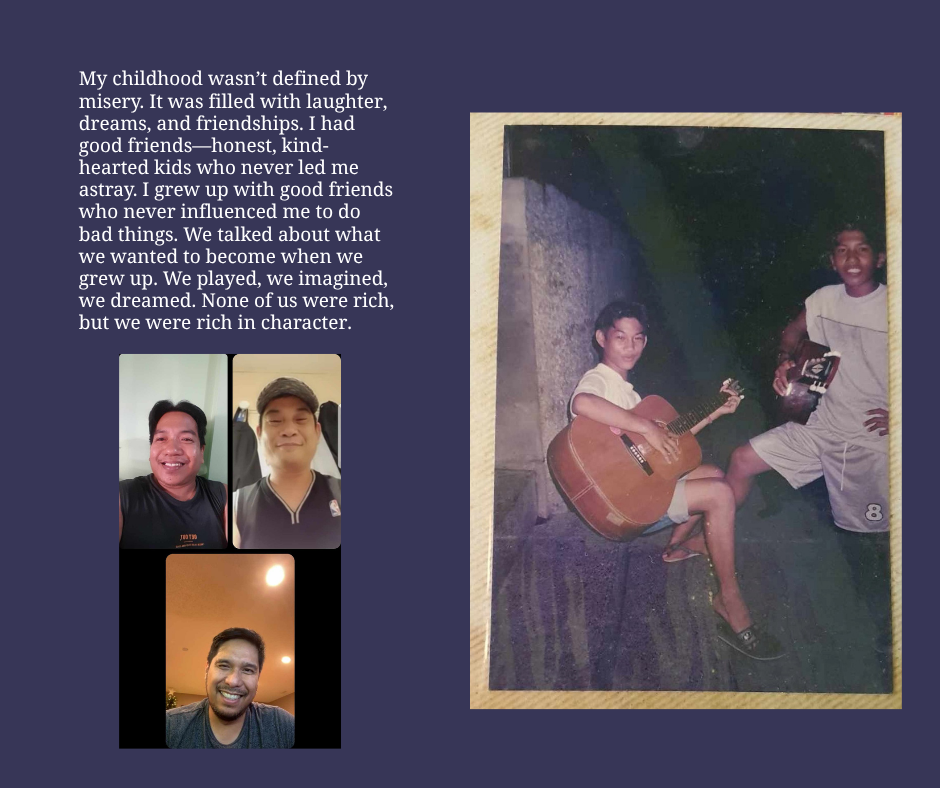From the Slums to Self-Worth: Why Kindness Outweighs Success
By: Felix Diaz, P. Eng.
I grew up poor in the Philippines. My father was a tailor and my mother was a dressmaker. They spent their lifetime grinding and making ends meet—from my childhood to a few years even after I graduated from university. We never had our own house. I spent my childhood renting and living in the slums. In the Philippines, we call it the “squatter’s area.”
Despite that, my childhood wasn’t defined by misery. It was filled with laughter, dreams, and friendships. I had good friends—honest, kind-hearted kids who never led me astray. I grew up with good friends who never influenced me to do bad things. We talked about what we wanted to become when we grew up. We played, we imagined, we dreamed. None of us were rich, but we were rich in character.
Some people say, “Hang out with five successful people and you’ll be the sixth.” That might be true. But I grew up with poor friends—kind-hearted friends. They may not be successful by wealthy people’s standards, but they are good people. And I’ve learned that not all successful people are kind. I’ve met people who are successful—at least on paper. They have the titles, the cars, the houses. But not all of them are kind. Not all of them have values I admire. And if I had to choose, I’d rather spend my time with people who are grounded, honest, and principled—even if the world calls them “losers.”
Success without humility is just noise. I’d rather walk with those who have little but give much, than sit with those who have everything but understand nothing.
Becoming the Person I Dreamed Of
Now I’ve grown up to become the person I dreamed of becoming as a kid. I work in the very profession I once dreamed of. I have my own house, drive my own car, and have a family of my own. I’m still not rich—but I’m not poor either.
What I’ve learned in life is that no amount of success entitles anyone to dictate how others should live. We admire people for what they’ve accomplished, for what they have, for their journey. But often, success makes people believe they know life more than anyone else. I’m guilty of that sometimes—thinking I know more when I meet someone who underachieved in their career compared to mine.
Some treat humans as if we’re simple. They act like poverty is just a result of bad habits. They relate their own early struggles to everyone else’s and offer close-ended solutions—as if their way to success is the only way. As if their story is a blueprint for everyone else. But often, it’s just a way to glorify themselves.
I thought about my parents—how they worked from sunrise to sunset, sewing clothes, skipping meals, sacrificing everything. I thought about my neighbors who juggled multiple jobs just to keep their kids in school. Some successful people's words don't just miss the mark—they erased the dignity of people who had fought battles they’d never even imagined.
We judge people based on the thickness of their wallet. But then I remember the people I grew up with. They didn’t have much, but they believed they were successful. And they were—because success isn’t defined by money alone. It’s defined by everything else that matters: kindness, honesty, resilience, and the ability to live with dignity.
Final Thoughts: Redefining Success
Success isn’t loud. It doesn’t always wear a suit or speak from a stage. Sometimes, it’s quiet—it’s a mother who skips meals so her children can eat, a father who works two jobs and still finds time to help with homework, a neighbor who shares what little they have. These are the people who taught me what real strength looks like.
So if you’re reading this and you feel like you haven’t “made it,” I want you to know: you are not a failure. You are not behind. You are not less. Your story matters. Your effort matters. And your dignity is not up for debate.
Let’s stop measuring worth by wealth. Let’s start honoring the courage it takes to keep going, even when the world doesn’t see you.
If my story spoke to you—if you’ve felt stuck, overwhelmed, or unsure about your financial path—I’m here to help.
Message me if you’re ready to take the next step.
Let’s build your version of success—together.
Contact us.

